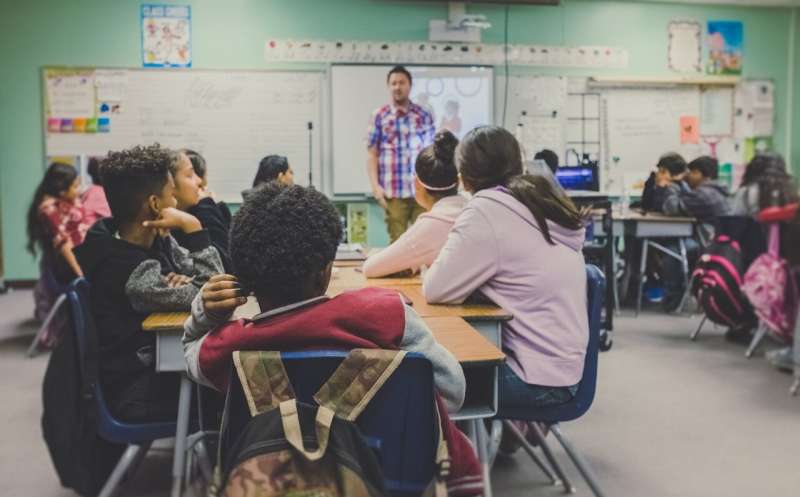Credit: Unsplash/CC0 Public Domain
A trio of researchers, one from Saint Louis University, the other two from the University of Chicago, has found that offering double-dose algebra instruction to struggling 9th grade students can lead to later benefits in college—but only if the students are paired with helpful peers. In their paper published in Proceedings of the National Academy of Sciences, Takako Nomi, Stephen Raudenbush, and Jake Smith describe their study that involved monitoring the achievements of students who took part in double-dose algebra courses in 9th grade as they advanced through college.
Over the years, algebra has earned a reputation as being a difficult educational experience by many students due to its combination of math, logic and communication skills. For that reason, educators have looked for ways to help struggling students improve their results. One such approach has been named double-dose algebra, wherein struggling students simultaneously take both a standard algebra course and a follow-up course meant to reinforce lessons. In 2003, the Chicago Public School system instituted a policy that required students who did not meet certain grade levels in math to enroll in double-dose algebra. Doing so did not lead to overall improvements in state tests, but it did lead to higher scores on ACTs and a higher likelihood of students going to college. In this new effort, the research trio wondered if requiring struggling students to take double-dose courses had any longer-term impacts.
To find out, the researchers studied the achievements of Chicago Public School students as they entered and made their way through college after taking the double-dose algebra classes. In looking at the data, they found that such students who earned any sort of college degree improved—from 12% to 17% and from 6% to 10% for a four-year degree. But they also found that there was a catch—those students who did better also had helpful peers. In their study, they describe helpful peers as classmates who had similar struggles with algebra. They suggest their findings indicate that for double-dose algebra to be effective, school administrators need to keep struggling students together both in their algebra classes and in the follow-ups. They also note that more work needs to be done to find out if the double-dose courses are helpful for students performing at the very lowest levels.
More information: Takako Nomi et al, Effects of double-dose algebra on college persistence and degree attainment, Proceedings of the National Academy of Sciences (2021). DOI: 10.1073/pnas.2019030118
Journal information: Proceedings of the National Academy of Sciences
© 2021 Science X Network























